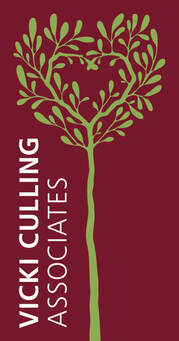Trusting Your Intuition
Why do my instincts matter? (Here's Still Aware's information on trusting your intuition)
The moment you find out you're pregnant you are already a mother. While in utero, your baby is communicating with you through its movements, and after 28 weeks in pregnancy you will have a regular pattern of movements to 'listen to'. Nobody knows your baby better than you, so it's important to trust your intuition if something feels irregular or different.
If your baby's movements have changed, or you feel like something is out of the ordinary, listen to your baby, trust your intuition, and contact your care provider to voice your concerns.
What if this is my first pregnancy? Will my midwife think I'm just being over-anxious?
If you have a feeling, trust yourself and ask to be checked out. If your baby was here and you thought he/she was sick, you wouldn't hesitate to take them to ED or the GP to be checked out. You are your baby's advocate when they are in the womb, so if something doesn't feel right, speak up. And if you are dismissed, ask to see someone else.
Many bereaved parents talk of wishing they had insisted on further testing or listened to their gut instinct that something was wrong. They want you to know that it's okay to speak up and not to worry about what anyone thinks - be brave for your baby!
Here's a link to a 2018 article on stillbirth mothers' experience of having a 'gut feeling' something was wrong.
Here's an excerpt from their conclusion...
Also maternity care providers should be open to the possibility that maternal intuition starts in pregnancy and just as it would be unwise to discount the intuitive concerns of a mother for the health of her toddler it may be equally unwise to discount concerns of a pregnant mother about her unborn baby. The findings of this study emphasise the importance of good quality communication between a pregnant mother and maternity care professional, and why continuity of care may be beneficial to pregnancy outcome, as women's concerns and experiences can be shared within a trusting professional-patient relationship.
Why do my instincts matter? (Here's Still Aware's information on trusting your intuition)
The moment you find out you're pregnant you are already a mother. While in utero, your baby is communicating with you through its movements, and after 28 weeks in pregnancy you will have a regular pattern of movements to 'listen to'. Nobody knows your baby better than you, so it's important to trust your intuition if something feels irregular or different.
If your baby's movements have changed, or you feel like something is out of the ordinary, listen to your baby, trust your intuition, and contact your care provider to voice your concerns.
What if this is my first pregnancy? Will my midwife think I'm just being over-anxious?
If you have a feeling, trust yourself and ask to be checked out. If your baby was here and you thought he/she was sick, you wouldn't hesitate to take them to ED or the GP to be checked out. You are your baby's advocate when they are in the womb, so if something doesn't feel right, speak up. And if you are dismissed, ask to see someone else.
Many bereaved parents talk of wishing they had insisted on further testing or listened to their gut instinct that something was wrong. They want you to know that it's okay to speak up and not to worry about what anyone thinks - be brave for your baby!
Here's a link to a 2018 article on stillbirth mothers' experience of having a 'gut feeling' something was wrong.
Here's an excerpt from their conclusion...
Also maternity care providers should be open to the possibility that maternal intuition starts in pregnancy and just as it would be unwise to discount the intuitive concerns of a mother for the health of her toddler it may be equally unwise to discount concerns of a pregnant mother about her unborn baby. The findings of this study emphasise the importance of good quality communication between a pregnant mother and maternity care professional, and why continuity of care may be beneficial to pregnancy outcome, as women's concerns and experiences can be shared within a trusting professional-patient relationship.
